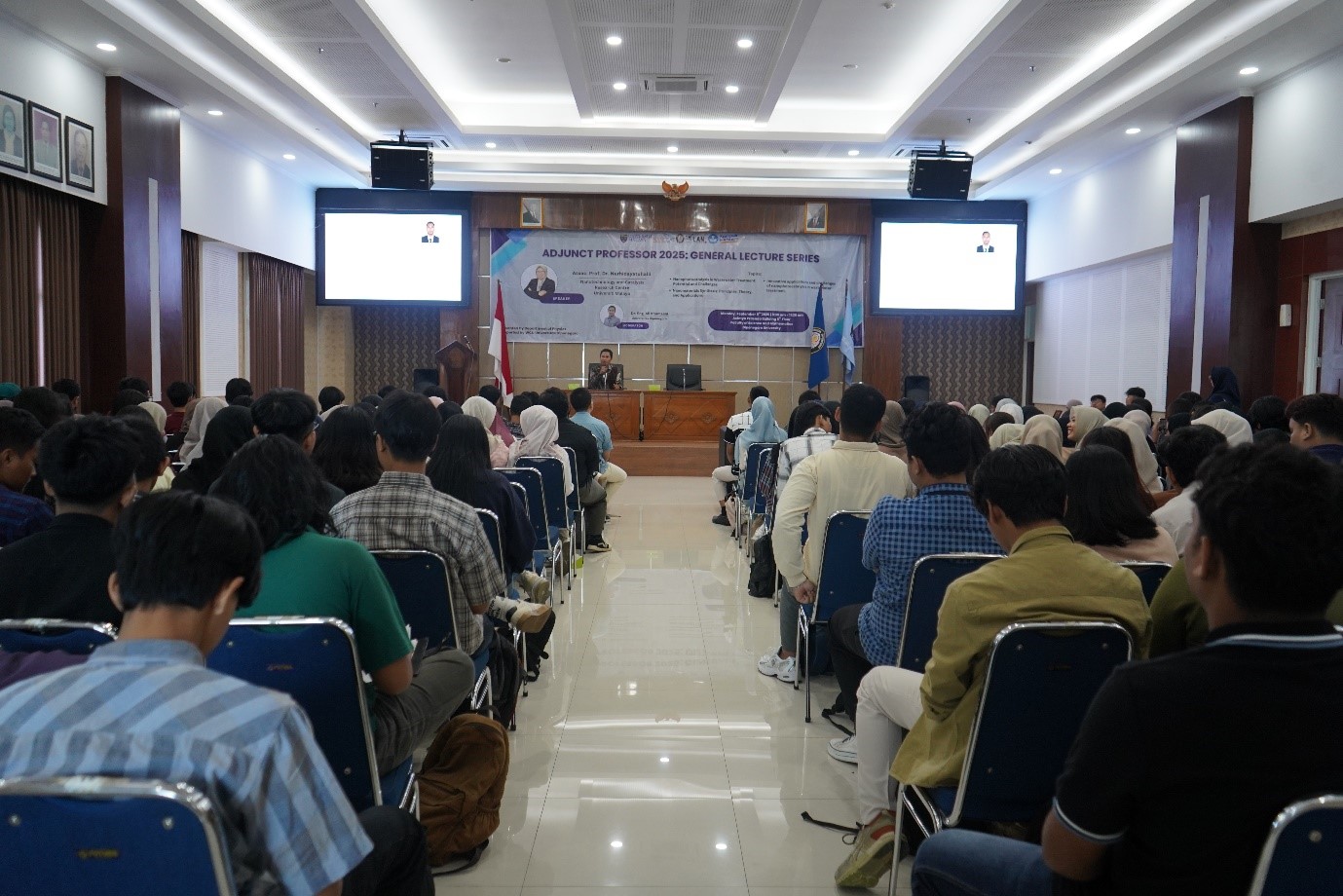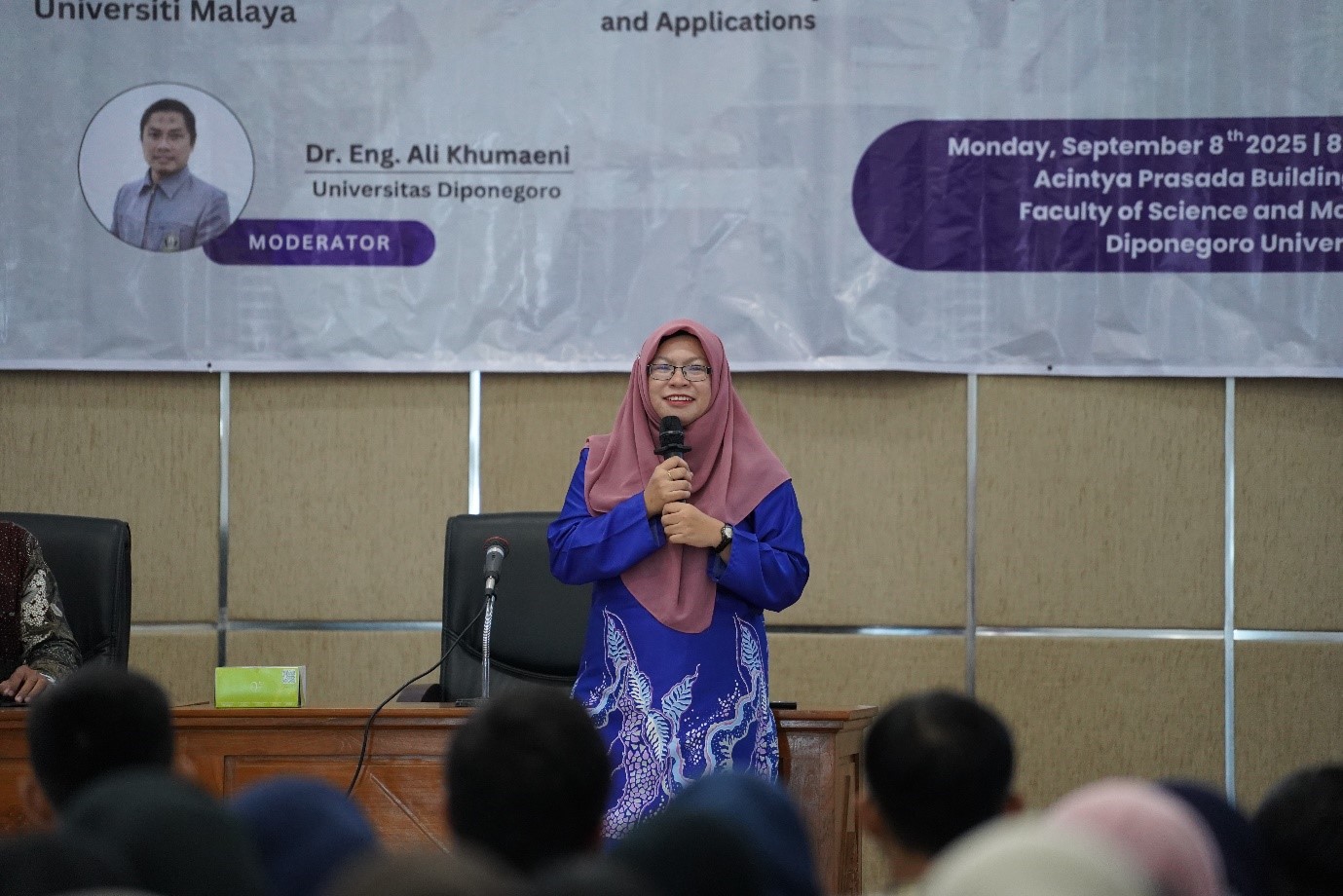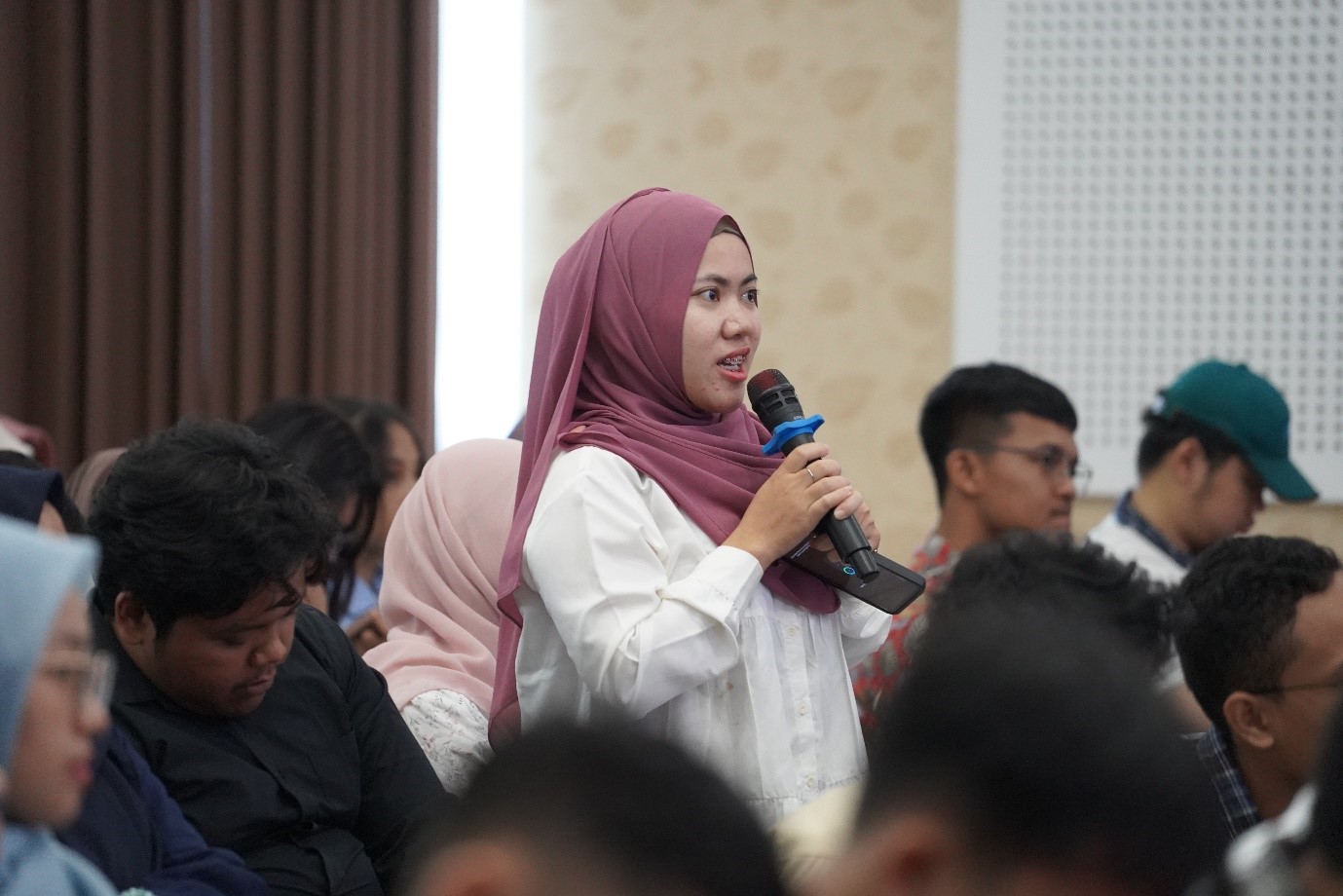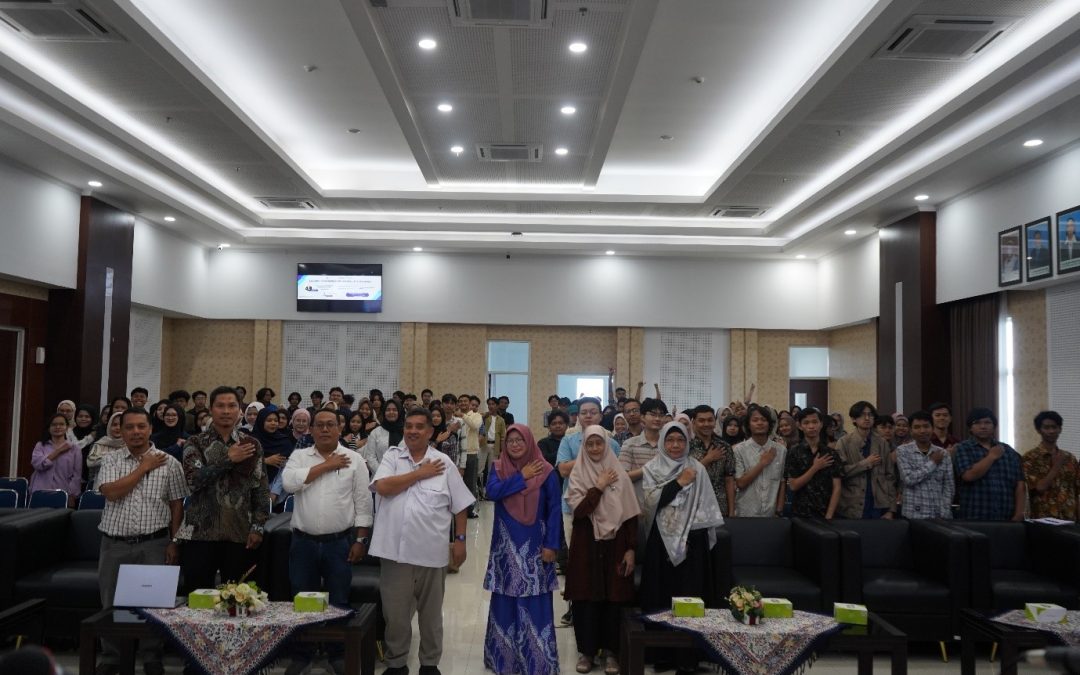Semarang, September 8, 2025 – The Faculty of Science and Mathematics, Diponegoro University (FSM UNDIP), successfully organized the Adjunct Professor 2025: General Lecture Series featuring Assoc. Prof. Dr. Nurhidayatullaili from the Nanotechnology and Catalysis Research Centre (NANOCAT), Universiti Malaya. The event, held at the 6th floor of the Acintya Prasada Building, FSM UNDIP, was attended enthusiastically by students and lecturers, particularly from the Department of Physics.
The event began with a welcoming speech from Prof. Dr. Heri Susanto, S.Si., M.Si., Head of the Physics Department, FSM UNDIP, who emphasized the importance of students’ understanding of nanomaterial experiments and encouraged them to actively ask questions. He also expressed his gratitude to Prof. Laili for her willingness to share her expertise. The next address was delivered by Dean of FSM UNDIP, Prof. Dr. Kusworo Adi, S.Si., M.T., who reminded students not to be passive listeners, but to engage actively in order to gain insights from international experts beyond the university environment.

In the lecture session moderated by Dr. Eng. Ali Khumaeni, lecturer at the Department of Physics, FSM UNDIP, Assoc. Prof. Nurhidayatullaili presented three main topics: Nanophotocatalysis in Wastewater Treatment: Potential and Challenges, Nanomaterials Synthesis: Principles, Theory, and Applications, and Innovative Application and Challenges of Nanophotocatalysis in Wastewater Treatment. She explained the fundamental principles of nanophotocatalysis, the role of light and semiconductors in generating reactive oxygen species to degrade organic pollutants, and the development of nanomaterials such as nanomagnetic photocatalysts and dual function photocatalysts with enhanced capabilities in breaking down wastewater contaminants.

She also elaborated on the principles of nanomaterial synthesis and the theories of nanoparticle growth that enable the creation of different structures such as nanorods or nanospheres for diverse applications, ranging from electronics to biomedicine. The perspective of sustainability was also highlighted through the green chemistry approach, stressing the importance of environmentally friendly synthesis processes, safer solvent use, and sustainable nanomaterial strategies to support renewable energy.

The enthusiasm of the participants was reflected in the many questions raised by students regarding the challenges of applying nanotechnology in wastewater treatment and the opportunities for further research in the field of nanomaterials. This interactive discussion made the event even more engaging and beneficial for all participants.
Through this activity, FSM UNDIP hopes that students not only gain the latest insights in nanotechnology and photocatalysis but are also motivated to actively contribute to research development relevant to global challenges. The General Lecture Series serves as tangible proof of FSM UNDIP’s commitment to bringing international experts to enrich the academic community’s knowledge and to support the advancement of education and research quality at Diponegoro University.

